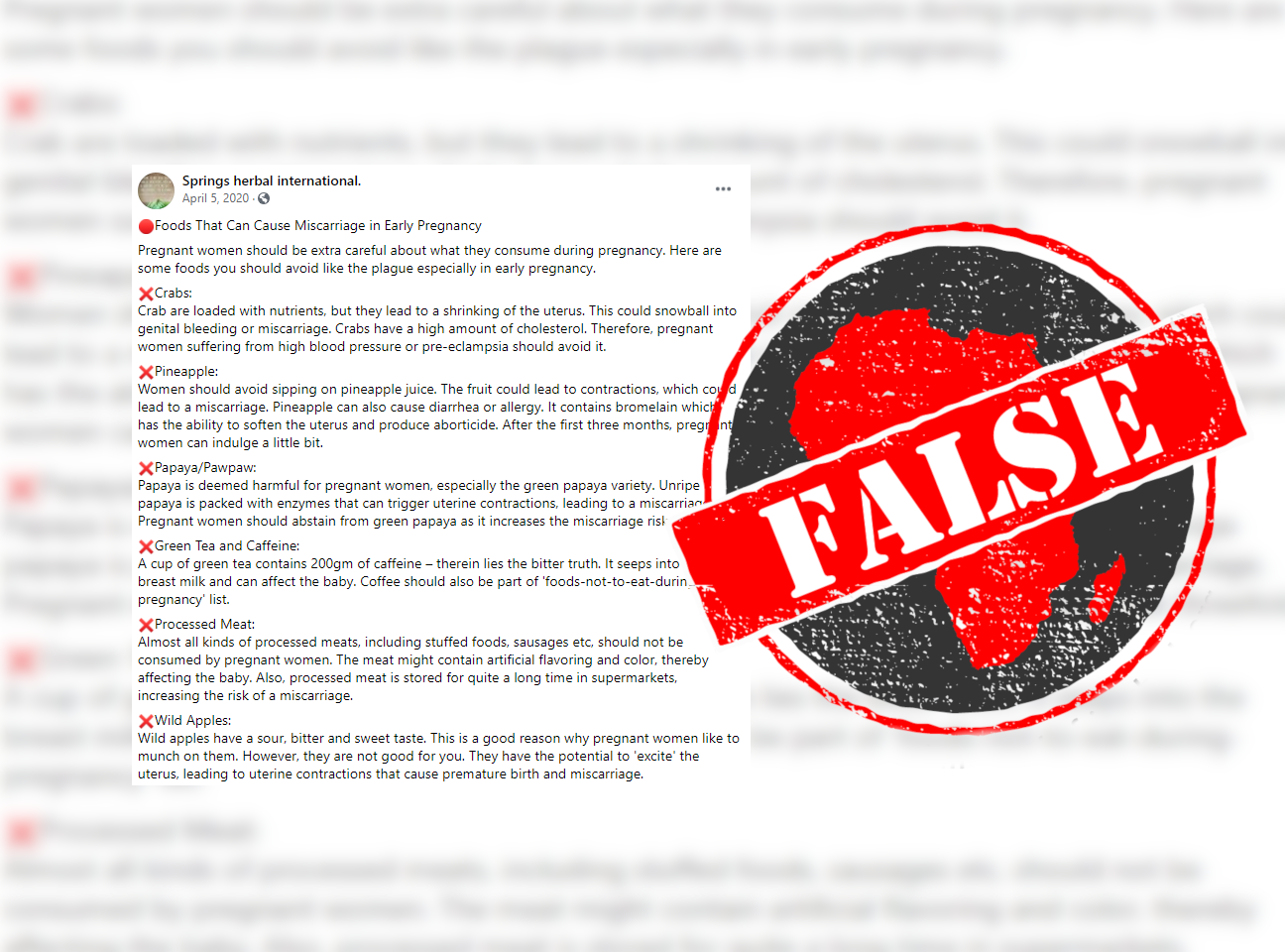According to an alarming Facebook post, certain foods should be avoided “like the plague” by pregnant women because they can cause miscarriage in early pregnancy.
The foods listed are crab meat, pineapple, papaya or pawpaw, processed meat, “wild apples”, green tea and caffeine.
Is this true?

What causes miscarriage?
According to the UK’s Miscarriage Association, most women who lose a baby through miscarriage don’t find out why, “even if they have investigations”.
The World Health Organization says there are many reasons why a miscarriage may happen, including foetal abnormalities, the age of the mother, and a variety of infections. But it is often difficult to determine the cause.
Tommy’s is a UK-based charity that funds research into pregnancy complications. It suggests some lifestyle changes that may “lower the chance of having a miscarriage”.
These changes include avoiding certain foods and limiting others, including caffeine. The charity mentions that green tea contains caffeine, and should also be limited.
Tommy’s says: “It is safe to eat cold, pre-packed meats such as ham and corned beef.” But it warns against eating cured meat, which is raw, and any liver products.
It also says that cooked shellfish, including crab, is safe to eat, but raw shellfish can cause food poisoning.
None of the fruits mentioned in the Facebook post are listed.
‘Everyday food safe for pregnant women’
We asked Samuel Uzoigwe, a professor of obstetrics and gynaecology at the University of Port Harcourt in Rivers State, Nigeria, about the fruits mentioned in the post.
He said the fruits, if consumed in moderation, were not harmful to a pregnant woman or foetus.
“The food and fruits listed are things that make up the diet of an average Nigerian. We can talk about food causing miscarriage only when the food has been contaminated or contains toxic materials, not everyday fruits,” Uzoigwe added.
Republish our content for free
For publishers: what to do if your post is rated false
A fact-checker has rated your Facebook or Instagram post as “false”, “altered”, “partly false” or “missing context”. This could have serious consequences. What do you do?
Click on our guide for the steps you should follow.
Publishers guideAfrica Check teams up with Facebook
Africa Check is a partner in Meta's third-party fact-checking programme to help stop the spread of false information on social media.
The content we rate as “false” will be downgraded on Facebook and Instagram. This means fewer people will see it.
You can also help identify false information on Facebook. This guide explains how.


Add new comment